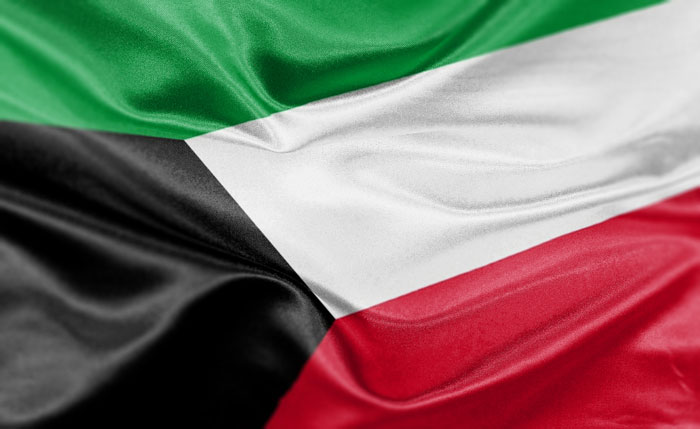Analyses / Middle East / North Africa
17 May 2024
Kuwait: A Troubled Democratic Experiment

There are countries that are seldom discussed, yet hold significant interest. Kuwait is one such country. This state, covering 18,000 km² and home to around 4 million inhabitants, stands out in several respects. Wedged between Iraq to the north and Saudi Arabia to the south, with Iran as a neighbour, this small oil-rich state in the northern part of the Arab-Persian Gulf is noteworthy for many reasons. It was the first Gulf state to gain independence from the British in 1961. Its political structure is distinctive in that it is a constitutional monarchy (albeit incomplete: the Emir holds extensive powers), as the constitution adopted in 1962 established a genuine elected National Assembly with significant powers, including the ability to impeach ministers — most of whom are members of the royal family.
A constitutional monarchy… incomplete
The events of recent days represent the culmination of a long-standing power struggle between this defiant parliament — where the opposition holds the majority (29 out of 50 seats) — and the new Emir, Sheikh Mishal Al-Ahmad Al-Jaber Al-Sabah, who previously served as Crown Prince and held power during the three-year incapacity of his half-brother, Emir Nawaf Al-Ahmad.
Sheikh Mishal Al-Ahmad Al-Jaber Al-Sabah, Kuwait’s 17th Emir, born in 1940, spent his entire career in the security apparatus. A graduate of the Hendon Police College in the United Kingdom in 1960, he held various posts in the police force before heading the National Guard. He had never held ministerial office before being appointed Crown Prince in 2020. The son of the country’s 10th Emir, he has had three brothers serve as Emir before him, including the highly respected Emir Sabah Al-Ahmad Al-Jaber Al-Sabah, known as a wise figure in the region.
The National Assembly comprises 50 elected members. It has been dominated by the opposition for the past three terms. Most members are independents (38), with others identifying with the Salafist movement (5), the Shia religious bloc (9), or the Muslim Brotherhood (3). The composition of the chamber reflects the country’s social structure: one segment is formed by representatives from the country’s various tribes, another by the conservative religious current and the Shia minority, and the final by the merchant class, which holds considerable influence in Kuwaiti society. Since the 1962 promulgation of the constitution, the chamber has been dissolved 13 times.
This parliament is known for its turbulence, frequently questioning ministers about their activities or holding them accountable for corruption, as seen in the case of the army pension fund scandal, which implicated a former Prime Minister and several ministers in the misappropriation of funds. All accused, except the Prime Minister, were sentenced to prison and ordered to return illegally acquired assets (estimated at US$800 million).
The assembly elected in 2022 was dissolved in 2023 by the State’s High Court on the basis of a constitutional procedural error. New elections were held, largely confirming the previous members, except for the Muslim Brotherhood, who lost seats.
The new Emir has now dissolved the chamber again and suspended several articles of the constitution (for a period not exceeding four years). This decision follows two months of governmental paralysis, during which the formation and approval of a new cabinet stalled. MPs claimed the right (by means of the threat of questioning or impeachment) to approve or reject ministerial appointments.
As the appointment of the Prime Minister and ministers is an exclusive prerogative of the Emir, this stalemate was paralysing the country and weakening the new Emir’s authority. Sheikh Mishal Al-Ahmad Al-Jaber Al-Sabah has thus dissolved the assembly and appointed a new Prime Minister, Sheikh Ahmad Abdullah Al-Ahmad Al-Sabah. This is Kuwait’s 46th government in 62 years and its 11th Prime Minister. The government comprises 13 members, most of whom have retained their posts from the previous cabinet.
Sheikh Ahmad Abdullah Al-Ahmad Al-Sabah was educated at the American Boarding School in Lebanon before attending the University of Illinois in the United States after completing his secondary education. He built his entire career in finance and has held the portfolios of Finance, Transport, and later Oil.
The 1990 invasion: a trauma hard to overcome
Kuwait has never fully recovered from the trauma of the invasion by Saddam Hussein’s Iraq on 2 August 1990. Like many Gulf states, Kuwait had welcomed, in the 1950s and 1960s, a workforce from Egypt and Palestine — a haven for members of the Muslim Brotherhood persecuted by Nasser, many of whom were employed in education. Salafist Palestinians, such as the family of Khaled Meshaal, the Hamas leader, also found refuge there. This “Brotherhood” presence facilitated the emergence of a Kuwaiti branch of the Muslim Brotherhood. The break with the organisation came after its pro-Saddam stances. Similarly, Kuwaitis have never forgiven Yasser Arafat, the then-leader of the Palestinian cause, for his pro-Iraqi positions during the conflict. This led to the expulsion of many Palestinians who had lived in Kuwait for decades.
Unlike other Gulf states, Kuwait has not invested significantly in infrastructure and has fallen behind Riyadh, Abu Dhabi, Dubai, and Doha. The trauma of the 1990 invasion, Iran’s presence on its doorstep, and the parliamentary gridlock fuelled by suspicions of corruption in every major transaction are all contributing factors.
The Bidouns: a thorn in Kuwait’s side
Kuwaiti society is not homogeneous, and the thorny issue of the “Bidouns” — stateless Kuwaitis without legal status due to failure to register during the 1960s — remains unresolved. This problem affects several hundred thousand people who, in effect, have no legal identity or rights. The majority of Bidouns are from nomadic tribes originally from the Arabian Peninsula who settled in Kuwait at the time of its independence in 1961. However, many failed or neglected to register as citizens, rendering them stateless. An aggravating factor is that during the 1990 Iraqi invasion, some Bidouns sided with Iraq and were subsequently rejected by Kuwaiti society. Their number is now estimated at around 300,000.
These combined factors make the issue of governance in Kuwait particularly sensitive, owing to both its internal and external vulnerabilities and the highly conservative nature of Kuwaiti society.

